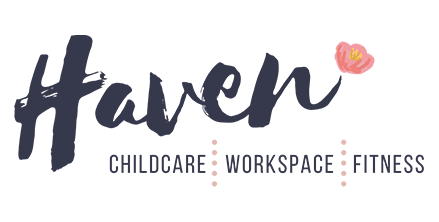As they grow, our kiddos are beginning to see themselves as a person separate from their caregiver. They try new things, test boundaries, and share their opinions… a lot. While they may be loving their new found independence, our little ones always come back to the safe people who provide them with love and care. We soak up the hugs and kisses but find loved ones getting jealous around the holidays, when our little ones don’t want the same attention from them. When we see strong emotions or shy glances when it’s time to hug grandma we know something isn’t right. I mean they love her and just gave her a hug last month. Out of nowhere a new behavior emerges and we’re caught off guard. What is making your once happy child who went to anyone so tentative?
While it could be for a plethora of reasons, what they may be experiencing is stranger anxiety. This can last from the infant days of about 6 months to two years old (sometimes even beyond.) They are realizing that not all relationships are equal, the ones they have with their caregivers are special. Any attempt to hold or play with a child experiencing stranger anxiety, by someone not in their inner circle, results in distress. We see this distress in many ways, all dependent on the temperament of the child. While some children hide, others will scream or maybe just stare as they cling to you with a tight grip. Rest assured, it’s a normal developmental stage that most children encounter at one time or another.
While it may not be possible to avoid it, there are steps you can take to hopefully minimize the extent in which it affects your little one this holiday season. Firstly, warn your friends and family. With a warning, you’ll likely be bombarded with questions from fewer family members, while there will surely still be some. Remind them that even reaching in for a hug may be too much, while a high five or simple wave is a step toward developing a relationship that your child approves of. On that same note, try to avoid pushing them into the arms of family members when they show you they don’t want that. While grandma may try and guilt you into holding her grandchild, she has to understand that it isn’t in the child’s best interest while they navigate this stage in their development. For a child experiencing stranger anxiety, it is important that they are introduced to new caregivers gradually. Tell grandma, or any member of the family who really wants that time with your kiddo, that you’re enlisting new babysitters! The semi familiar face may help alleviate some stress. But, it’s not time to walk out the door just yet. Even with a family member, stay and wait for your child to become comfortable with them, even if it takes a few visits. Above all else, never disregard the feeling they are experiencing. Not feeling comfortable around unfamiliar people is an emotion even adults are faced. It’s our job to continue showering them with reassurance because they need to know that they will always find love and care within our arms.
Ultimately we need to conclude that giving a hug to a family member is a choice they are capable of making at any age. Your children have their own ideas and feelings, and to them the only people they really know are the ones who provide for them unconditional love everyday. As caregivers we must provide them with a voice while they learn to use their own. At the end of the day it’s their body and missing out on a couple of hugs doesn’t mean they’ll never love grandma again. While it may feel embarrassing or your family may not understand, assure them that when they’re ready they’ll likely go back to hugging everyone’s lap as they once were. While this stage may be hard, ultimately it’s the best time to soak up extra hugs from your love bug.
